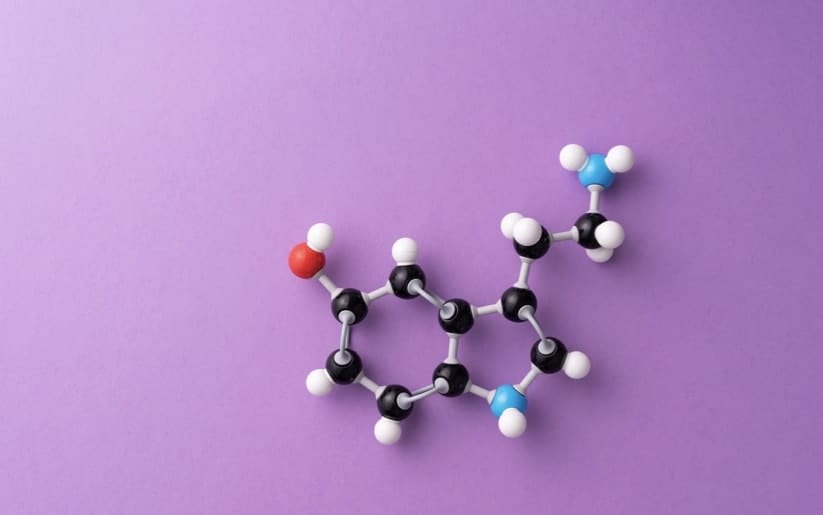In the past, hormonal imbalances were considered a “female issue” that no one really talked about. Most people thought they were just something that happened to women once a month or throughout pregnancy. Thankfully, modern research shows that hormones are part of a much bigger picture, and they affect how both women and men feel every single day.
Not only do hormones affect the energy levels of men and women, but they are like chemical messengers that also play a part in how you look, your moods, sex drive, how you sleep, and even how you digest your food. With these facts in mind, it just makes sense to do everything we can to prevent hormonal imbalances before they become an issue. Although getting plenty of exercise and reducing your stress levels can help, the key is to ensure that your body is receiving the right nutrients to support your hormone levels.
So, which nutrients support balanced hormone levels? Well, we did some investigating, and there are a few nutrients that really stand out when it comes to healthy hormone levels. Here’s what we learned.
Vitamins and Minerals That Promote Healthy Hormone Levels
-
Selenium
The thyroid gland requires selenium to function correctly. Since our thyroid glands are responsible for producing the hormones we need for optimal metabolism, cardiac function, digestion, brain health, muscle control, bone strength, and moods, we should all ensure that we’re getting adequate amounts of selenium. Selenium can also affect fertility in both women and men, improve cognitive function, strengthen the immune system, and even increase longevity. To increase your intake of this trace mineral, eat more tuna, crab, lobster, and brazil nuts, or choose an excellent supplement that includes selenium.
-
Omega-3 Fatty Acids
Omega-3 fatty acids are crucial for reducing inflammation, which goes hand in hand with balanced hormone levels. Any time there something out of whack in the human body, we see inflammation. Omega-3s are the big guns when it comes to reducing pain and inflammation, even during the female menstrual cycle. But it goes further than that. We also need fats for the production of certain hormones, so obviously, we need to consume some healthy fats for balanced hormone function. You can increase the amount of Omega-3s in your diet by eating more fatty fish. If you don’t like fish, don’t worry! You can easily meet your daily Omega-3 requirements of 800 to 1,200 mg of DHA by taking a supplement.
-
Probiotics
Hormone health and gut health go hand in hand, so probiotics are essential when it comes to balanced hormone levels. Both men and women should be conscious of their gastrointestinal health. The typical American diet is a significant contributor to the obesity epidemic in this country because it causes inflammation, which is harmful to your gut flora. Nourishing your gut health can also reduce acne and other skin disorders, reduce headaches and migraines, strengthen your immune system, and increase energy levels. To safeguard your hormone levels and your gut health, introduce a high-quality probiotic into your daily routine, and eat more cultured and fermented foods.
-
B-Complex Vitamins
Incorporating B-complex vitamins into your daily wellness routine is a great way to prevent hormonal imbalances. They have a direct impact on the production of essential hormones like serotonin, growth hormone, and adrenal hormones. They also help to balance testosterone, estrogen, and progesterone levels. B vitamins are also critical for detoxifying the liver, regulating your moods, boosting your energy levels, and for optimal nerve function. B vitamin deficiency is quite common. To increase your intake of these critical vitamins, consume more whole grains, meat, and dairy or take a B-complex supplement every day.
-
Iodine
Your thyroid uses iodine to make hormones, so getting too much or too little has a direct impact on your thyroid health. As mentioned above, thyroid hormones impact your metabolism, as well as brain and bone health. Most Americans get more than enough iodine because it’s added to table salts. However, if you eat a low salt diet or use only non-iodized salt, it is possible that you could be deficient. The only way to know if you are getting enough, or too much, iodine is to see your doctor for a blood test, and you should never take an iodine supplement without checking with your doctor first.
-
Vitamin D
Vitamin D has many crucial roles in the human body, and it actually converts to a hormone in order to do its job. It is essential for the production of sex hormones, including testosterone, progesterone, and estrogen, which are also necessary for mood health. Vitamin D is also vital for bone and cardiovascular health. Since it comes from the sun, many people are deficient in Vitamin D, especially during the winter months. If you suspect that your Vitamin D levels are low, eat more fatty fish, dairy, eggs, and mushrooms. Most people do not get enough Vitamin D in their diet, so taking a high-quality Vitamin D supplement every day can also make a huge difference in how you feel.
Foods to Limit for Healthy Hormone Levels
If you are concerned about your hormone levels, there are a couple of foods that you may want to approach with caution.
Cruciferous vegetables, like broccoli and cabbage, produce a chemical compound called goitrin that can inhibit the absorption of thyroid hormones.
If you have an iodine deficiency that affects your thyroid, cruciferous vegetables should be cooked before you eat them to limit the goitrogenic effects.

Another food that could interfere with healthy hormone levels is soy. Highly processed soy, like tofu and soy milk, also have a goitrogenic effect that may interfere with proper thyroid function.
Interestingly, whole-food soy, like tempeh and edamame, doesn’t seem to interfere with the thyroid, so it’s a healthier choice for your thyroid and hormone levels.

By now, we all know that eating refined sugar and carbohydrates will cause weight gain. However, these foods should also be avoided entirely or minimized for properly balanced hormone levels as well.
Carbohydrates and fructose, which is a significant component of many sugars, increase insulin levels, and contribute to insulin resistance.

Final Thoughts
It’s clear that nutrition plays a key role in balancing your hormones. Eating a well-balanced diet every day is crucial, but many people who eat a clean diet are still deficient in essential nutrients that can affect their overall health and hormone levels. Taking a high-quality vitamin and mineral supplement every day helps fill in the gaps.

